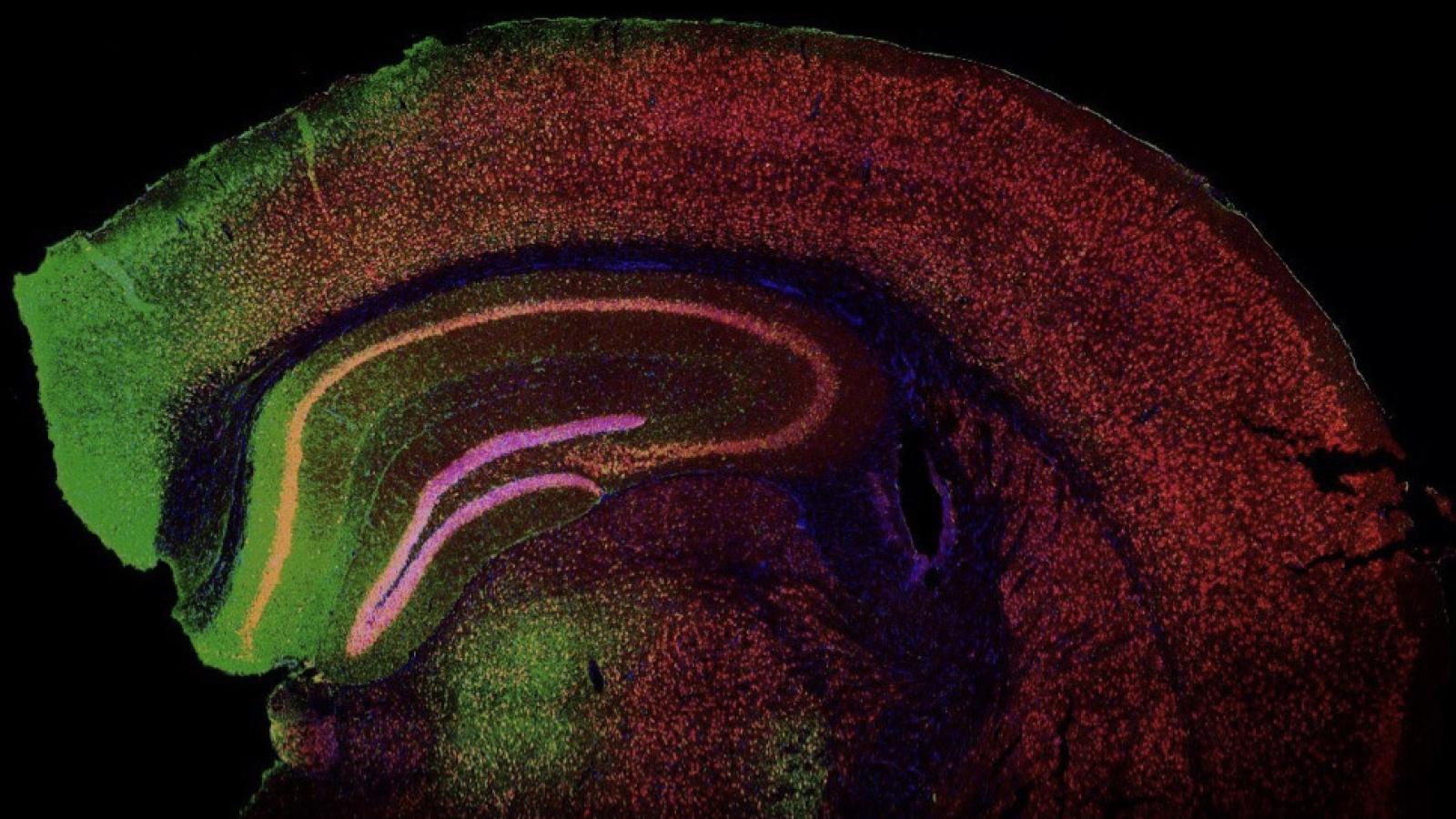A new spin-out company from the UK DRI at King’s College London has raised $80 million (£58.6 million) in its Series A round, following an initial $16.5 million (£12 million) seed financing, to develop innovative gene therapies for people living with neurodegenerative diseases. If successful, treatments could permanently correct faulty genes potentially transforming the lives of individuals affected.
AviadoBio was co-founded by Christopher Shaw, Professor of Neurology and Neurogenetics at the UK DRI at King’s, along with neurobiologist Dr Youn Bok Lee and vector biologist Dr Do Young Lee. The team will use a patented UK DRI gene therapy platform to develop treatments initially for Frontotemporal dementia (FTD) and Amyotrophic Lateral Sclerosis (ALS, motor neuron disease, MND). The substantial new investment will allow the company to take their pioneering research through to in-human clinical trials targeting FTD for the first time. The funds will also help advance other pre-clinical work into ALS and ultimately other neurodegenerative diseases.
Frontotemporal dementia is a progressive neurodegenerative disease affecting the frontal and temporal lobes of the brain and is the second most common form of young-onset dementia (<65 years). FTD is characterised by changes in personality, behaviour and language, rather than short-term memory deficits seen in Alzheimer’s disease. ALS/MND causes progressive muscle paralysis affecting limb movements speech and swallowing, leading to death from respiratory failure within 3-5 years. Crucially, there are no treatments that can slow or halt progression of either disease.
Investment received by AviadoBio in its Series A funding round
Gene therapy is a promising approach for the potential treatment of neurodegenerative diseases, based on the principle of delivering DNA into cells to supplement or knock down mutated genes. AviadoBio is using the non-pathogenic adeno-associated virus (AAV), which can be engineered to carry theses gene therapies to target specific cells such as neurons in the brain and spinal cord. This technology proved life changing for babies with the genetic motor neuron disease, spinal muscular atrophy (SMA) who rarely lived beyond 2 years without being ventilated. A single treatment in infancy protected their motor neurons such that they achieved milestones such as walking, talking and breathing without ventilation.
The therapy will target the gene encoding the protein progranulin, which is mutated in about 20% of inherited and 5% of non-inherited or sporadic cases. Progranulin is important for biological processes such as inflammation and the growth of neurons, and mutations of the gene in FTD cause a significant reduction in the levels of the protein. Delivering unmutated copies of the gene will help restore this imbalance in progranulin and improve the symptoms experienced in the disease.
Prof Christopher Shaw, UK DRI at at King’s, Co-founder and Chief Scientific and Clinical Advisor of AviadoBio, said:
“Whilst neurodegenerative conditions are focal at onset, the pathology eventually spreads throughout the nervous system. We have seen that modifying gene expression can be curative, but achieving widespread distribution is the greatest challenge. We have shown that precision micro dosing to neural networks will deliver broad CNS expression, providing safe and effective treatments,”
“We are directly exploiting insights into the causes of diseases to design therapies that have the potential to cure patients for whom there are no effective treatments. I believe that AviadoBio has the potential to move neurodegeneration from palliation to prevention.”
The investment marks a huge milestone for the new company, as well as for Co-founder Professor Christopher Shaw personally, whose decades of discovery research into FTD and ALS have set the groundwork for promising new disease therapies.
Professor Shaw, added:
"AviadoBio’s unique platform combines next-generation gene therapy design with deep neuroscience expertise and a novel neuroanatomy-led approach to drug delivery. Precision micro dosing achieves extensive gene expression throughout the nervous system, maximising the therapeutic potential for patients living with devastating neurological diseases."
For the UK DRI, who contributed £2 million to Prof Shaw’s gene therapy platform in 2019, the development shows that smart investment into the dementia field can reap huge rewards - taking us from proof-of-concept to first-in-human research and, most importantly, bringing us a step closer to effective treatments.
Dr Kay Penicud, UK DRI Director of Business and Innovation, said:
“We are very proud to see our work grow and flourish. Our core model at the UK Dementia Research Institute is to incubate ideas, unlock their potential and ultimately attract further investment to take them forwards so they can improve the lives of the millions of people affected by dementia.”

The Company is led by recently appointed Chief Executive Officer and Board member Lisa Deschamps, former Senior Vice President and Chief Business Officer at Novartis Gene Therapies. Lisa brings more than 25 years of biopharma experience including leading the global neuroscience business of Novartis and the worldwide commercialization of its gene therapy for spinal muscular atrophy.
The financing was led by New Enterprise Associates (NEA) and co-led by Monograph Capital, with participation from LSP, as well as seed investors Advent Life Sciences, Dementia Discovery Fund (DDF), F-Prime Capital, JJDC and medical research charity LifeArc.
As part of the Series A financing, Matt McAviney, Partner at NEA and Tim Funnell, Partner at Monograph Capital have been appointed to the Company’s Board of Directors. They are joined by Amber Salzman and Prof. Philip Scheltens as an independent Board Director and a Board Observer for LSP, respectively. Amber has been a pioneering entrepreneur in leading companies and not-for-profit organizations focused on gene therapies and rare diseases for more than 20 years, while Prof Sheltens is a world-renowned dementia scientist and thought leader.
Article published: 02 December 2021
Banner image: Image of green fluorescent protein (GFP) expression in the mouse brain cortex following adeno-associated viral (AAV) vector injection. Courtesy of the Shaw Lab.
